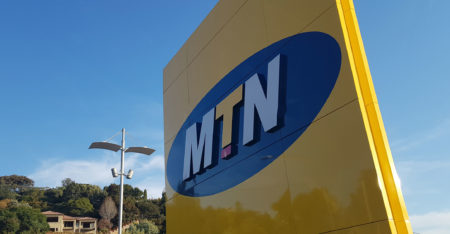Released five years after Icasa tried to license access to the spectrum for broadband services, the final policy is not dissimilar to what the communications regulator originally intended.
Browsing: Telecoms
Communications minister Stella Ndabeni-Abrahams has asked Icasa to ensure that preferential access to spectrum is given to a new wholesale open-access network while opening the way for spectrum to be released to commercial operators.
Communications regulator Icasa has issued an invitation to apply for a tender to help it value high-demand spectrum bands ahead of a planned assignment of the valuable radio frequencies.
MTN Nigeria has published strong maiden results as a listed company, with operating margins expanding significantly on the back of good service revenue growth.
Telkom CEO Sipho Maseko earned total remuneration of R23.2-million in the 2019 financial year, down from R27.2-million in 2018, mainly as a result of fewer shares that vested to him in the period.
Vodafone Group plans to carve out its phone towers into a separate unit and consider an initial public offering, as it seeks to sell substantial stakes in the business to lower its debt.
Vodacom reported a 1.2% year-on-year decline in service revenue in South Africa in the three months to end-June, with the company blaming new data regulations from Icasa and a switch in roaming partners.
Huawei quickened revenue growth to roughly 30% in the first half after select teams secured critical supplies to keep production going despite US technology export restrictions.
The UK government is intervening in the $3.4-billion sale of satellite operator Inmarsat to a group of funds on national security grounds.
The department of communications & digital technologies was meant to publish the policy direction on the assignment of broadband spectrum in South Africa last Friday, but failed to do so.










